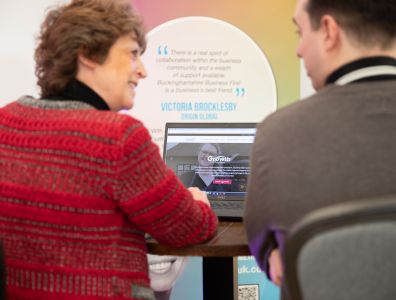- By Philippa Batting, Managing Director, Buckinghamshire Business First
- 19 June, 2019

Share by email
Neurodiversity can help talented people fulfil their potential in the world of business, but it is yet to receive the attention it deserves.
By Philippa Batting, Managing Director, Buckinghamshire Business First
If you think of all the ways in which society has sought to make workplaces more diverse over the years (race, gender, sexuality, religion), we have all made amazing progress, but one area yet to receive the attention it deserves is neurodiversity.
Neurodiversity refers to the different ways our brains function, learn and process information, and this is different for all of us. Differences are often quite noticeable in people with autism, ADHD, dyslexia, and dyspraxia, but this is not about those labels per se, it is about recognising and respecting people whose brains function differently, not ‘better’ or ‘worse’, and helping everyone flourish.
It is estimated that around 1 in 7 people in the UK are neurodivergent, but research suggests that these people are three times more likely to be rejected for roles, so for business owners, thinking about neurodiversity means thinking about your hiring practices, workplace culture, and what skills you need in your business.
Possible skills among neurodivergent people
The perfect team is not full of perfect people; it is full of people with different skills, strengths and weaknesses that mesh together to complement each other. There are unique sets of skills accessible when we hire neuro-diverse employees, especially in growth sectors in Buckinghamshire like IT and the Creative Industries, for example: visual thinking, creativity, 3D mechanical design, intuition, 'hyper-focus' or concentration, fine-detail processing, and sequencing.
So although some neurodivergent people may not be as comfortable delivering a presentation as others, they may be the people best suited to crafting a data-driven presentation for someone else to deliver, and they will ask the questions no one else has thought of.
This is not to stereotype people, as not all neurodivergent individuals will have the same characteristics, it’s simply true to say that some people’s brains function differently from the majority and this should be understood and embraced.
How can employers embrace neurodiversity?
At Buckinghamshire Business First, we are thinking about how to best embrace neurodiversity within our team and would encourage other employers to do the same. We need to raise awareness of the fact that there is untapped talent out there that may not be getting a fair crack at jobs they would excel in.
Businesses should ensure they are providing equal opportunities for all. Do job adverts appeal to everyone or do they alienate certain people by highlighting potential stress-points such as the need to deliver presentations? Can businesses offer informal interview processes and settings to put at ease people who might otherwise struggle in formal settings? Having an open plan office can be over-stimulating for some; how can businesses ensure everyone is comfortable in their surroundings?
By appreciating differences and the diversity the world affords us, people benefit, society benefits and businesses benefit.
Do you have any thoughts on neurodiversity in business?
I would love to hear your thoughts on how businesses can embrace neurodiversity. Email me at [email protected].







